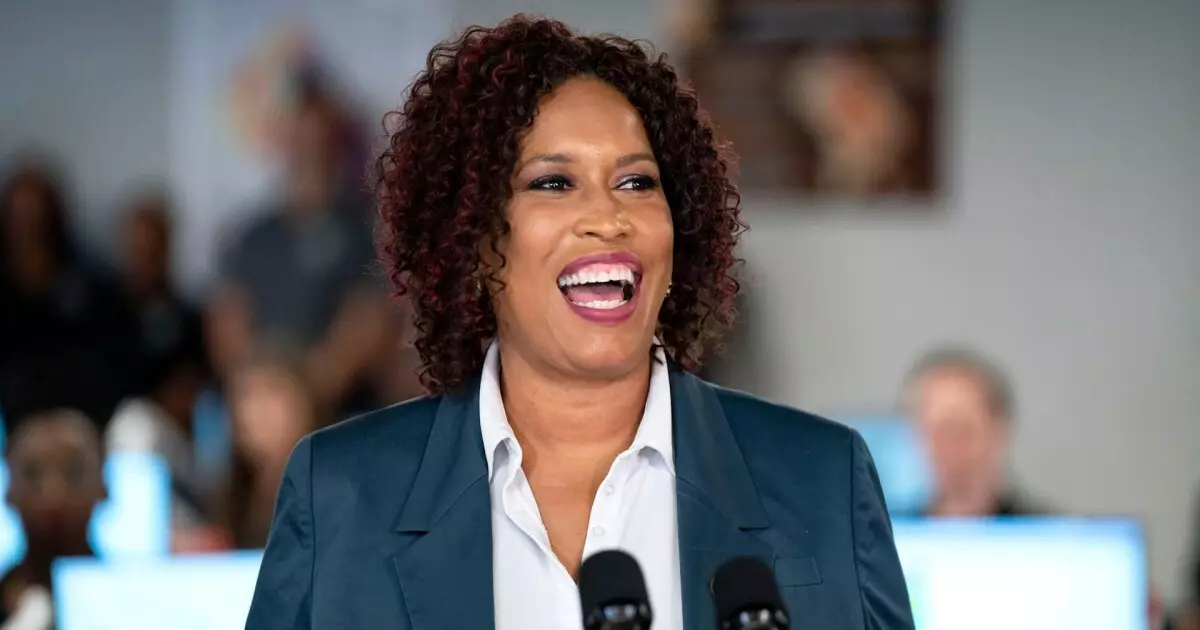The financial wellbeing of Washington, D.C., once a city perceived as a beacon of prosperity, is increasingly under threat, primarily due to legislative gridlocks that seem more about political theater than genuine governance. With a looming crisis surrounding the continuity of funds approved for the 2025 budget, the implications could be dire, not only for the district’s economy but also for its residents and local businesses. Mayor Muriel Bowser’s remarks serve as a wake-up call, indicating that the House’s inaction on a continuing resolution is pushing D.C. closer to a financial precipice. Instead of upholding their fiscal responsibilities, lawmakers seem complacent, neglecting the deep-seated consequences of their disjointed approach.
Congressional Oversight: A Double-Edged Sword
The relationship between the District of Columbia and the federal government is fraught with complexity. As the seat of power in the United States, D.C. functions under the constant glare of congressional oversight, which can both support and undermine its fiscal independence. This oversight often feels like a double-edged sword: the city is required to maintain balanced budgets, yet it lacks the autonomy to make independent decisions that could alleviate its financial woes. This is not merely a bureaucratic formality; the consequences are tangible, resulting in a $1.1 billion shortfall as the district is compelled to work within a restrictive 2024 budget. As Mayor Bowser pointed out, any further inaction could force the city to resort to drastic measures, which could hinder essential services.
Impact of Federal Decisions on Local Economy
The repercussions of fiscal decisions at the federal level are acutely felt in D.C., where the economy is intricately tied to the fate of its federal workforce. Predictions that up to 40,000 jobs could vanish in the coming years due to federal cuts paint a bleak picture for the city’s economic landscape. This isn’t just about numbers; these jobs fuel local businesses, housing markets, and community initiatives. If Congress fails to address these systemic issues urgently, the city risks becoming a shadow of its former self, burdened by rising unemployment and dwindling economic activity. The focus should shift from idealistic political grandstanding to pragmatic solutions that would stabilize the workforce and generate new economic growth.
The Ratings Agencies: A Grim Prognosis
The warnings from major credit rating agencies shouldn’t be taken lightly. While the city currently enjoys a AA+ rating, the recent negative watch from Fitch Ratings and potential downgrades from Moody’s exemplify the cracks forming in D.C.’s financial facade. The perception of instability could deter future investments and escalate borrowing costs, laying the groundwork for a downward spiral. A positive outlook is crucial for maintaining investor confidence, yet the lack of decisive action from Congress sends a clear signal of uncertainty. It is a disconcerting reality that the very agencies tasked with safeguarding economic health are now sounding alarms over escalating risks stemming from inaction.
Beautification vs. Fiscal Responsibility: Where Do We Stand?
While the challenge of maintaining a clean and aesthetically pleasing city remains critical, especially in a political hub like D.C., it should not overshadow the pressing economic issues at play. The President’s newly formed task force aimed at beautification efforts, such as enhancing public safety and reducing crime, seems admirable at first glance. Still, it raises questions about prioritization when the financial foundation of the District hangs precariously in the balance. Tackling illegal immigration and recruiting additional police officers is essential, but can these initiatives really take precedence over a deteriorating fiscal emergency? Dismissing the financial crisis while focusing on superficial improvements reflects a troubling misalignment of priorities.
The convergence of concrete financial issues with broader social concerns presents a unique challenge for D.C. As the situation evolves, it calls for urgent, bipartisan action rather than more gridlock. This city deserves a governing body that prioritizes financial stability while also addressing quality of life for its residents. True leadership must emerge—not just in the form of task forces or beautification initiatives, but through effective budgetary strategies that restore fiscal health and enhance the urban experience for all who call D.C. home.

